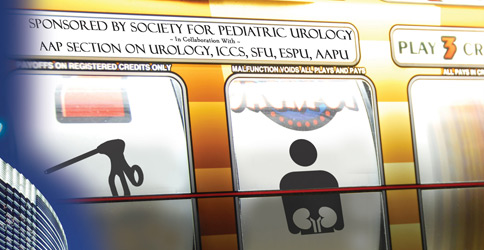|
Back to Fall Congress
Experimental fertility preservation interventions in pre-pubertal boys: A report on preferences of teenage cancer survivors, parents, and oncologists
Armando J. Lorenzo, MD MSc, Rachel M. Donen, MSc, Darius J. Bagli, MD, Abha A. Gupta, MD, Abha A. Gupta, MD.
Hospital for Sick Children, Toronto, ON, Canada.
Background
Infertility from cancer treatment is a source of great distress for many survivors. Testicular biopsy and sperm banking are options for fertility preservation (FP) in post-pubertal boys; unfortunately, there are no options for boys diagnosed before puberty. Results from animal studies have demonstrated that it is possible to grow mature sperm from immature testicular tissue. In order to develop this technology in humans, access to pre-pubertal (PP) tissue will be crucial. Herein we report on preferences for biopsy for both potential FP and research.
Methods
Pediatric oncologists, parents of recently diagnosed boys, and male teenage cancer survivors were recruited from two major pediatric centers in Canada. During participant interviews and surveys, a hypothetical decision was made between 1) testicular biopsy (all for clinical storage), 2) testicular biopsy (portion for research), and 3) no biopsy. Factors influencing decisions were also identified.
Results
Since November 2012, 31 interviews and 119 surveys have been completed. Sixty-one of 89 parents (69%) preferred biopsy where a portion of tissue was donated to research, as did 9 of 14 oncologists (64%) and 12 of 16 survivors (75%). The main factors influencing decisions were: chance to have kids, risk of infertility, wanting to help all kids with cancer, likelihood technology would develop, and concerns about complications from biopsy and cost. Data revealed incongruence between groups about who biopsy should be offered. Oncologists believed it to be their duty to only present this option to children who were at greater risk of infertility, families or FP programs who could afford storage, and/or boys with greater chance of cure. In contrast, 93% of parents and 94% of survivors would have wanted biopsy presented before treatment to ensure they had choice; no matter the factors of the case or final decision.
Conclusions
Our data suggests that cancer survivors and parents want the option of PP testicular tissue cryopreservation to be offered, no matter oncologists’ perceptions of risk versus benefit. Herein we provide novel information on factors influencing decisions.
Back to Fall Congress
|

